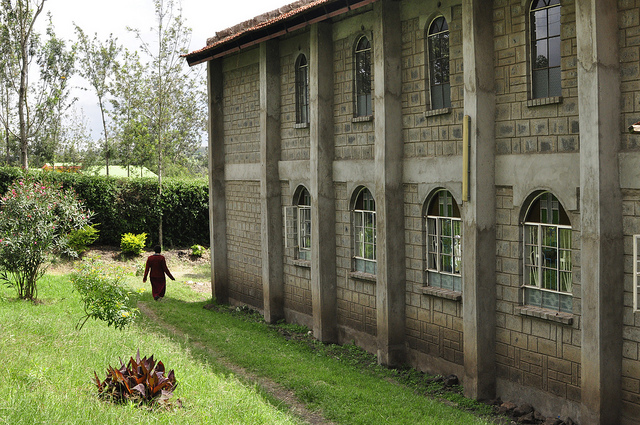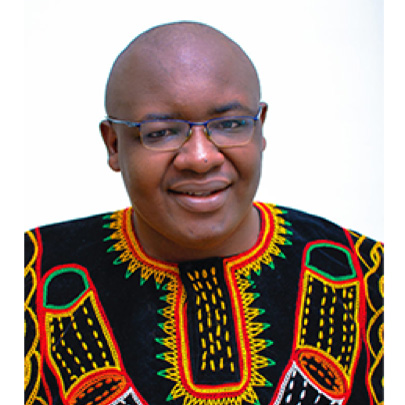“Faith, the way, and competition among churches”
November 13  Cameroon is a largely Christian country, writes Alphonse Akouyu, 19, a Correspondent from Bamenda, Cameroon, but mainstream churches are seeing a rise in new churches that are drawing members by preaching a Prosperity Gospel System.
Cameroon is a largely Christian country, writes Alphonse Akouyu, 19, a Correspondent from Bamenda, Cameroon, but mainstream churches are seeing a rise in new churches that are drawing members by preaching a Prosperity Gospel System.
In a country where belief in God is regarded as a compulsory duty rather than a choice, you would expect the churches to have a good following.
The Christian faith today in Cameroon accounts for more than 70 per cent of the country’s religious following, with a good number spread across what is called here the mainstream churches: Catholic, Baptist and Presbyterian.
Recently there has been an upsurge in the number of Christian churches in the country, but their activities have prompted the government to crackdown on some them.
Before revisiting the activities of these churches let’s look at the roots of Christianity in this country. Christianity first reached Cameroon around the 1880s as a result of the generous contributions of missionary bodies such the London Baptist Missionaries, Basel Missionaries and the Catholic Missionary Societies including the Mill Hill Fathers and Sacred Heart Fathers.
In those days the faith served as the way for the locals who, by giving up the negative aspects of African traditional religion and embracing this new form of belief, became the fulfillment of 2 Corinthians 5:17: ’When anyone is joined to Christ, he is a new being, the old is gone, the new has come’. This was all about bringing Light to what was then called the ‘Dark Continent’. For the missionary bodies, their works were a result of Matthew 28:19: ’Go then, to all peoples everywhere and make them my disciples, baptize them in the name of the Father, Son and the Holy Spirit, and teach them to obey everything I have commanded you and I will be with you always, to the end of the age’.
In those days, Christianity was an orderly religion which stuck to its rules. Its fruits can be seen in the great names of who wrote their names in the sands of time in this country as they passed through the mission schools. Fast forward some years, and the situation is more or a less a jungle that thrives on survival of the fittest as the numerous churches now in the fray struggle with different ways of doing things and setting new rules. This has led the government to recently launch a crack down on some of what can be called ‘Clandestine Churches’ that operate illegally and whose activities are harmful to the public. It is key to note here that in Cameroon churches are given licenses to operate through a Presidential decree. If they don’t have that decree, they are called prayer cells or operate illegally. It is really weird to hear that – that the activities of a church are harmful to the public.
To get what some call their clients, some of the clandestine churches use the popular ‘Prosperity Gospel System’. Here Christians are told that poverty, sickness, suffering, bareness and other forms hardships are not their portion in the name of Jesus. According to them this new model of belief entails no forms of hardship. Pastors of these churches claim they can cure diseases and communicate with the Holy Spirit. With such promises telling the people what they want to hear, a good number of Christians flock out of the mainstream churches in search of the fulfillment of the ‘Prosperity Gospel’. This new aspect of religious prayer crusade uses captivating captions such as ‘Power Must Change Hands’ and ‘It is Not Your Portion’. In one such crusade a pastor tells his faithful that their miracles are coming. Characterized by the use of loud speakers playing religious music, these services disturb neigbourhoods, make residents upset, and in the end the public is really feeling the disruptive effects of their activities.
The government has been forced to ban some of these churches, a course of action that many churches see as persecution. Some people pray in front of these churches as signs that they would not give up praying to their God, who would see them through these trial moments. One cannot deny that some of these devotees are real, but amidst the good ones some have entered into it to enrich themselves from Christian tithes. God will replenish the hand that giveth, as another pastor says.
With all these situations, there arises the question of who is to blame. Some say it is as a result of poverty and other societal hardships, because these churches say God will take care of those problems. Others accuse the mainstream churches of not fulfilling the spiritual needs of their faithful, but rather concentrating on other areas of less interest. To many Christians nowadays religion can be the way, but some are no longer interested in going to church. They prefer to stay at home and believe that God, who is omnipresent, will listen to them.
photo credit: Brad Ruggles via photopin cc
…………………………………………………………………………………………………
About me:
Hello everyone this is your friend Akouyu Alphonse from Bamenda located in the North West Region of Cameroon. I’m currently in my last year in the Catholic University of Cameroon Bamenda studying Banking and Finance. I will be completing my studies in June of 2014 with the hope of becoming a Business/International Relations expert.
My areas of interest are serving as Journalist especially on Sports (football) and societal issues aimed at inspiring people to believe in themselves and volunteerism.
…………………………………………………………………………………………………
Opinions expressed in this article are those of the author and do not necessarily represent the views of the Commonwealth Youth Programme. Articles are published in a spirit of dialogue, respect and understanding. If you disagree, why not submit a response?
To learn more about becoming a Commonwealth Correspondent please visit:
http://www.yourcommonwealth.org/submit-articles/commonwealthcorrespondents/
…………………………………………………………………………………………………






